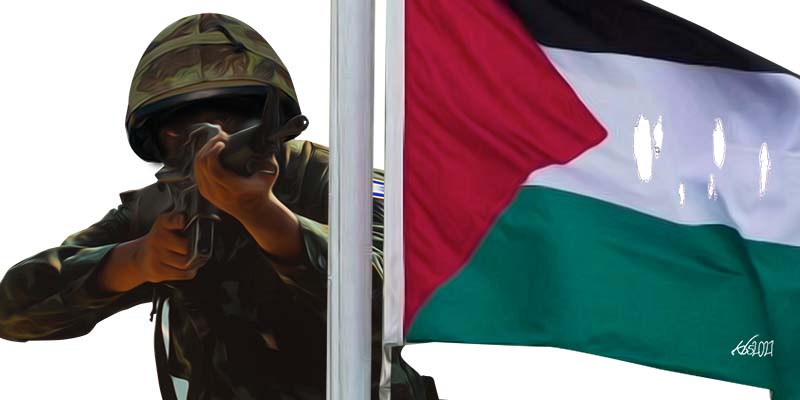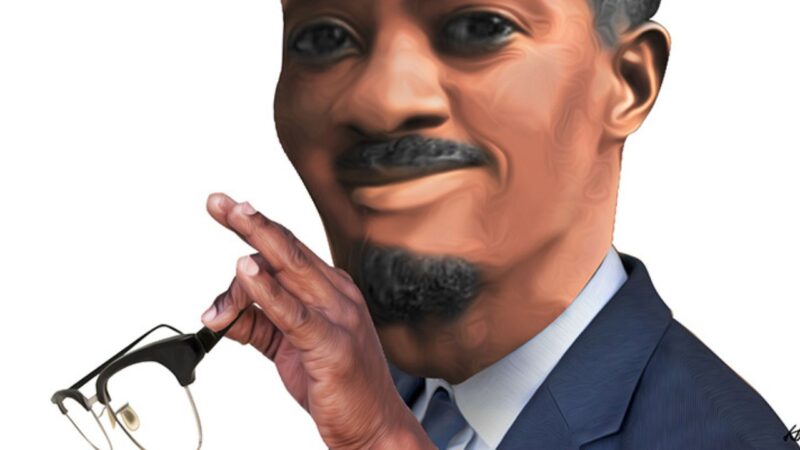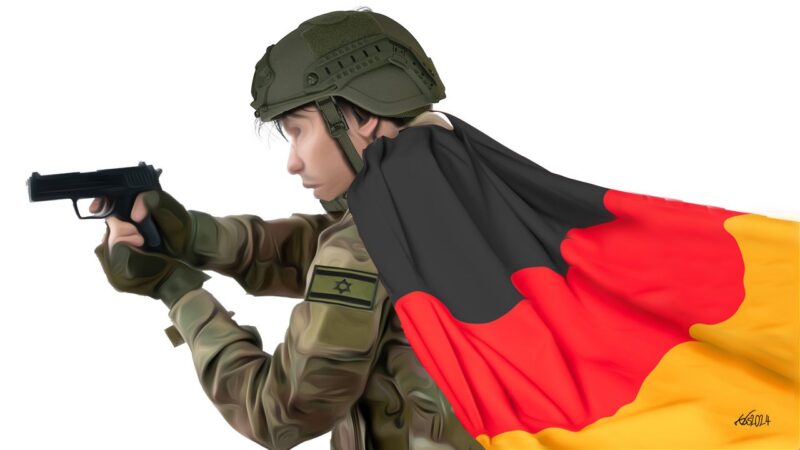South Africa’s two main political parties recently took to parliament to set out their official positions on Gaza-Israel conflict and, bar differences in tone and delivery, they seem, on the face of it, to be on the same page, broadly speaking.
On behalf of the ANC, International Relations and Cooperation Minister Naledi Pandor said her party believes Israel has a right to exist as a state alongside a state of Palestine and that this has been the long-standing view of the ANC.
The International Relations and Cooperation spokesperson for the main opposition Democratic Alliance (DA) said the DA stood in solidarity with both Palestinians and Israelis who seek a two-state solution and rejects any sentiment that seeks to annihilate either Israel or Palestine.
That said, DA leader John Steenhuisen, who infamously travelled to Ukraine in May 2022 on what he called a “fact-finding mission” and returned pledging South Africa’s support for that country and vowing that he would not stop putting pressure on the ANC government to change its stance on its conflict with Russia, recently fired a member of the shadow cabinet for tweeting in support of the Palestinians.
Steenhuisen dropped his erstwhile Public Enterprises shadow spokesperson Ghalib Cachalia over a statement on X that read, “I will not be silenced. Israel is committing Genocide. Full BLOODY stop.”
Cachalia, who is the son of anti-Apartheid activists Amina and Yusuf Cachalia and a relative of a former ANC MP Ismail Mahomed Cachalia, was axed for stepping out of line following a DA national caucus meeting in October at which party members were told that they should abstain from making public statements that could divide or inflame the Gaza-Israel conflict further.
The DA is visibly tiptoeing around the situation in the Middle East and this approach is most certainly linked to next year’s election in which the DA hopes to lead an opposition coalition including parties that are already divided on the Gaza-Israel conflict. Even the normally obstreperous former party leader, now chair of the DA Federal Council, Helen Zille, has opted to stay mum.
More importantly, the DA has a large following in the Western Cape, the only opposition-controlled province of the nine provinces that make up South Africa. The Western Cape is the only one of South Africa’s nine provinces that is controlled by the main opposition DA, which has its roots in the white parliamentary opposition to the apartheid-era National Party before democracy in 1994.
The party is seen as being mainly white and middle class, with members drawn from all races, but in the demographically unique Western Cape, coloured voters form the majority and, since the 2009 election at least, the DA’s main support.
The Western Cape also happens to have a large and influential Muslim population and it would not do their electoral chances any good to upset that constituency so close to such a crucial election.
Cape Town’s Muslim population is South Africa’s largest, and it has a long history, being there for as long as the city has existed. The city’s core Muslim population is made up of people who can trace their roots to south-east Asia, and a racial group known as the Cape Malays, who were originally brought to South Africa from Dutch colonies in Malaysia and Indonesia as enslaved labourers. The Cape Malay community in turn forms part of the coloured community in Cape Town and the province.
Other members of the Cape’s Muslim community include individuals of Indian or Pakistani descent, a large number of Somali nationals and refugees from African and Asian countries.
However, away from mainstream politicians and politics, South Africans seem split along the usual racial lines, with many white South Africans supporting Israel and blacks supporting Palestinians.
Smaller parliamentary parties have also taken position, including the Economic Freedom Fighters (EFF) who said they were taking Palestine’s side in the issue. During the parliamentary debate, EFF MP Mbuyiseni Ndlozi said his party stood with the oppressed and condemned Israel as a “murderous apartheid regime engaged in the systematic extermination of Palestinians”.
The right-wing Freedom Front Plus (FF Plus) party, which was founded in 1994 by members of the white settler Afrikaner community but which now has significant support among the Western Cape’s Coloured community, took the opposite stance.
FF Plus MP and chief International Relations spokesperson Corné Mulder has taken issue with what he calls “the ANC government’s open anti-Israel sentiments” and said the FF Plus emphasised its support for the state of Israel and recognised Israel’s right to defend itself and its citizens with all means at its disposal.
The divisions highlighted by political parties can also be seen in South Africa’s civil society where there are even splits in the Jewish community.
The South African Jewish community traces its origins to the early decades of the 19th century, when small numbers of Jewish immigrants, mainly from the United Kingdom and Germany, began settling in what are today South Africa’s Western Cape and Eastern Cape provinces.
The divisions highlighted by political parties can also be seen in South Africa’s civil society where there are even splits in the Jewish community.
According to the South African Jewish Board of Deputies, the umbrella representative spokesbody and civil rights lobby of the South African Jewish community, the country’s Jewish population reached a peak of 118,200 in 1970. Thereafter, mainly as a result of political unrest, the community began decreasing, and today it numbers around 75,000 people.
South African Jewry remains by far the largest Jewish community on the African continent. Most Jews today live in Johannesburg and Cape Town. South African Jews are overwhelmingly affiliated to Orthodox congregations, comprising some 88 per cent of the total, while the Progressive movement accounts for most of the remaining affiliated Jews, with a small Conservative congregation in Johannesburg.
So you have organisations such as the South African Zionist Federation (SAZF), the umbrella body of all Zionist and pro-Israel organisations in South Africa, which has mounted an aggressive campaign to shore up support outside the community amongst journalists and other opinion shapers.
At the same time, there are groups such as South African Jews for a Free Palestine (SAJFP) who have been calling out the Israeli government and urging an immediate ceasefire and decolonisation.
South African Jewry remains by far the largest Jewish community on the African continent.
In a recent statement, the SAJFP said the Israeli government had escalated a fundamentally immoral and criminal offensive against the population of Gaza, that there was no justification for Israel’s atrocities in Gaza, and that what is going on there was nothing less than collective punishment, ethnic cleansing and genocide.
Meanwhile, when the South African government recalled its ambassador to Israel this week, SAZF national chairperson Rowan Polovin described the action as the ANC government withdrawing unilaterally from brokering peace in the Middle East, choosing to side with Hamas militants responsible for abducting South African hostages.
The situation has also awoken voices from South Africa’s anti-apartheid struggle such as Dr Allan Boesak who at the start of November questioned the country’s co-hosting of the recent United States of America’s African Growth and Opportunity Forum for 2023.
Boesak said co-hosting the meeting would mean playing host to representatives of US President Joe Biden amid the intensifying genocidal war on the people of Gaza and on all Palestinians. He pointed out that it was an incomprehensible situation that raised fundamental questions for South Africans who profess a “special relationship” with the Palestinian people in their struggle for freedom, dignity, and the right to return of the land, and to the land.
Another of the issues Boesak raised was the fact that South Africa retains diplomatic ties with Israel despite the ANC’s stance on the general Palestinian question and the Gaza issue in particular.
Back in June this year a story unfolded that would foreshadow some of the divisions in South African politics and society on the Israeli Palestinian issue.
The way the incident unfolded, and the positions of political parties and civil society, including religious groups, was almost like a dry run for how various political parties, religious groups and civil society would position themselves following the October 7 events and their aftermath in Gaza and Israel.
It emerged that around a fifth of school leavers from Herzlia High School, a Jewish community school in Cape Town, go to Israel in the year after their final exams to join the Israel Defence Forces (IDF).
The story of the Herzlia High School students joining the IDF was brought into the public domain by Khalid Sayed, a Muslim ANC Member of the Provincial Legislature (MPL) and that party’s provincial education spokesperson. The story surfaced following the broadcast of an interview at the end of May with ILTV Israel News, an Israeli TV news channel, during which the authorities at the school disclosed that a number of their students had joined the IDF.
In the legislature Sayed posed a question to the province’s education MEC (equivalent of a provincial minister) David Maynier in which he wanted to know whether learners at Herzlia High School underwent some form of indoctrination to ensure their support and loyalty to the Israeli regime.
A fifth of school leavers from Herzlia High School, a Jewish community school in Cape Town, go to Israel in the year after their final exams to join the Israel Defence Forces.
Sayed argued that an educational institution meant to foster critical thinking, empathy, and a commitment to justice, was instead being associated with support for Israel’s regime and military which is involved in inflicting injustice on the Palestinian people. He said that by maintaining ties with Israel, the school had become complicit in the occupation and oppression of the Palestinian people.
In response, Maynier claimed Sayed had asked the question to deflect attention from the South African government’s entanglements with Russia, and made an issue of the fact that just a short while before, Sayed had posted pictures of himself on social media posing with the Russian Consul General in Cape Town.
At this point in the debate in the provincial legislature, EEF’s Aisha Cassiem took up the cudgels and called for Herzlia High School to be deregistered. Cassiem said it was insulting for the DA provincial government to condemn the war in Ukraine but do nothing with regard to this school which she said was clearly aligned to the state of Israel and encouraging learners to partake in apartheid.
Maynier stood firm and said the DA-run provincial government would not deregister Herzlia High School and accused the ANC and the EFF of playing politics. In this he was supported by a DA political ally, the ACDP (African Christian Democratic Party) whose MPL’s contribution to the debate was to point out that the ACDP supports Israel and its “right to defend itself”.
At the same time, ChristianView Network, a vocal Christian lobby group based in the Western Cape, said in a statement at the time that the debate was the climax of “a string of unwarranted Muslim anti-Israel verbal attacks harassing and threatening Cape Town Jewish institutions and leaders on the allegation of association with Israel”.
Fast forward to the last few weeks since the flare up between the Hamas-controlled Gaza and Israel and the positions on Israel reflect similar divisions, only even more entrenched.








